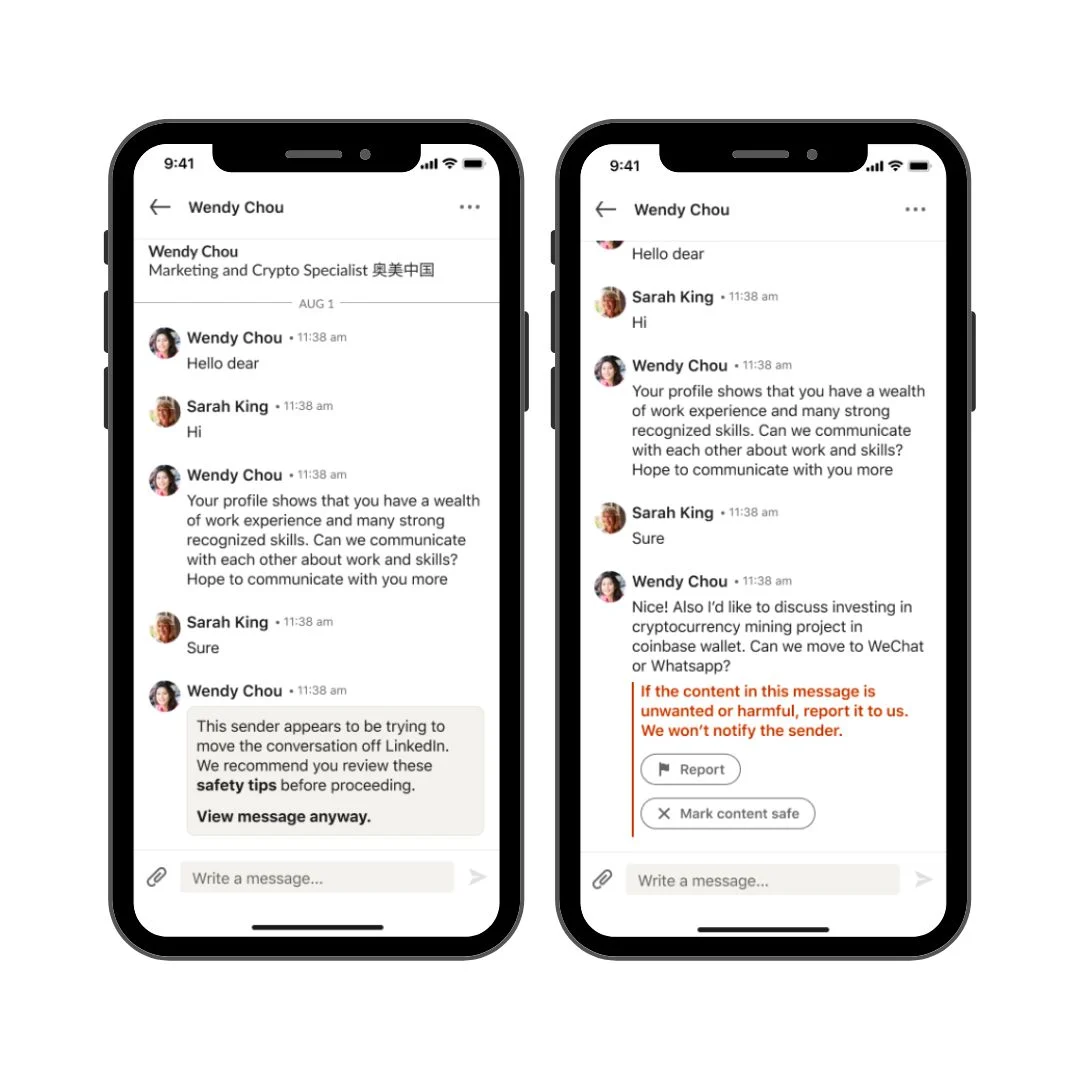After previewing new verification features last month, LinkedIn is now rolling them out to give job-seekers confidence that they’re dealing with real companies and jobs. At the same time, the work-oriented social media site has introduced warnings for messages that may look like scams. The latter feature arrives amidst a spate of fake accounts on the site, according to LinkedIn’s latest transparency report.
The first type of verification tool is related to job postings, displaying information about the posters and their companies. For instance, it can display verifications for a company page and job poster work email, and whether their government ID was verified by CLEAR, the same company that gets people to the front of security lines and airports and other venues.
“When you see verifications on job posts, that means there is information that has been verified as authentic by the job poster, LinkedIn or one of our partners,” the company wrote in a blog post. Verifying with CLEAR is free but requires sharing a US phone number and government ID. You can also confirm your employer via a verification code sent to your company email address, and some users can verify both their identity and employer via Microsoft Entra, for companies enrolled in the program.
LinkedIn pointed out that it recently launched the About This Profile feature to show when a profile was created and last updated, and whether it has a verified phone number and/or work email associated with the account. The aim is to flush out fake accounts, but LinkedIn is also rolling out new messages that warn users about high-risk content.


“We now also alert you if messages on LinkedIn include high-risk content that could impact your security. For example, we will alert you if a message asks you to take the conversation to another platform, as that can sometimes be a sign of a scam. If something doesn’t feel right, these warnings will also give you the choice to report the content without letting the sender know,” the company wrote.
The new features arrive in the wake of LinkedIn’s latest transparency report, which showed a large increase in scam accounts. Between July and December 2022, the company blocked more than 58 million accounts, up from 22 million in the previous six months. LinkedIn is even seeing profiles with fake photos created by AI, something it wrote about last year. Though it said its new “deep-learning-based model proactively checks profile photo uploads to determine if the image is AI-generated,” a recent study identified over 1,000 active profiles using AI-generated photos, The Financial Times reported.
LinkedIn noted that verifications on job posting have just started rolling out, so while you may not see them yet, the tools will be more prevalent as the company expands access. In the meantime, it recommends you check out its tips on how to spot and avoid suspicious job postings.
All products recommended by Engadget are selected by our editorial team, independent of our parent company. Some of our stories include affiliate links. If you buy something through one of these links, we may earn an affiliate commission. All prices are correct at the time of publishing.
This story originally appeared on Engadget

